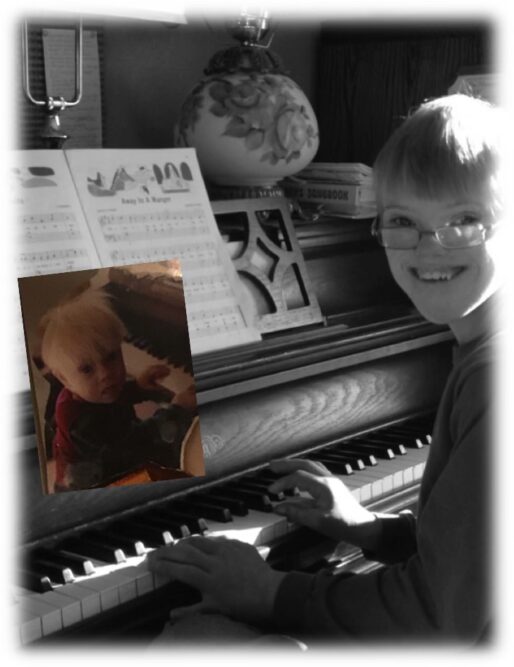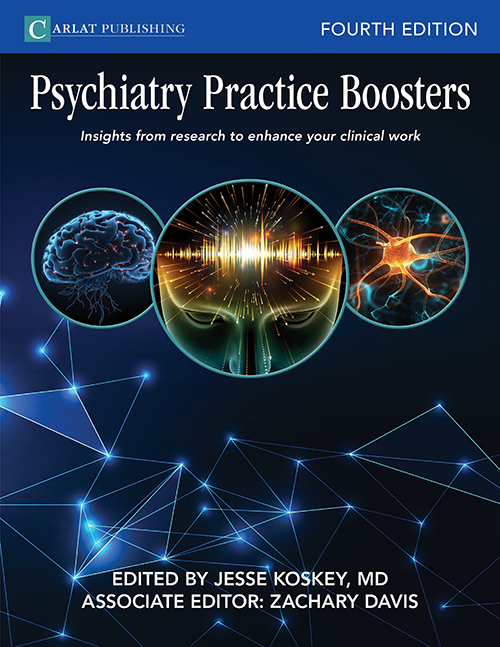Trisomy 21: An Overview for Child Psychiatrists

Ben, a fifth grader with trisomy 21, has trouble concentrating at school. He is sleeping poorly and says that he feels sad. His parents report increased irritability, social withdrawal, and sleep disturbances. On your assessment, he appears to meet criteria for ADHD and major depression.
Trisomy 21 (T21), also known as Down syndrome, is a genetic condition characterized by the presence of an extra copy, or part of a copy, of chromosome 21. The term “trisomy” denotes the presence of three copies of this chromosome, as opposed to the typical pair—one from each parent—that exists for all other chromosomes. T21 occurs in about one in 800 live births across races and economic levels (Bull MJ, New Eng J Med 2020;382(24):2344–2352). Prevalence increases to about one in 100 for mothers at age 40. However, since far more babies are born to younger mothers, 80% of cases occur in mothers under 35 (Song Y et al, Front Genet 2022;13:980627). A family history of the condition and medical disorders (eg, diabetes) increases risk.
T21 is the leading genetic cause of developmental delays and is associated with intellectual disabilities, distinct facial features, and various medical conditions, such as congenital heart defects and hearing loss. In addition, a variety of psychiatric comorbidities can impact patients’ quality of life and complicate their clinical management. Common comorbidities include:
- Depression and anxiety: Symptoms include social withdrawal, changes in appetite, and sleep disturbances, depression and anxiety can be challenging to diagnose due to overlapping symptoms with T21 and communication barriers.
- Autism: The overlap of autism symptoms with the behavioral phenotype of T21 can make diagnosis difficult. Key indicators include persistent deficits in social communication and interaction, along with restrictive and repetitive behaviors.
- ADHD: Symptoms like inattention, hyperactivity, and impulsivity are common but can be overlooked due to the intellectual disability associated with T21.
- Dementia: Over half of individuals with T21 will develop dementia as they age, particularly Alzheimer’s disease. Onset is typically at a younger age compared to the general population, with symptoms often appearing as early as a patient’s 40s or 50s.
Treatment of psychiatric comorbidities
Pharmacotherapy
We recommend beginning with relationship-based interventions and addressing sensory, communication, and motor planning before using medications. We also recommend tapering medications if symptoms subside and nonpharmacologic measures can sustain improvement. With that said, the following are pharmacologic treatments for co-occurring conditions often seen with T21.
Depression and anxiety
- Selective serotonin reuptake inhibitors (SSRIs): These are often the first line of treatment for depression and anxiety in patients with T21. Starting doses might be sertraline 12.5–25 mg/day, fluoxetine 5–10 mg/day, and citalopram 5–10 mg/day, with gradual titration based on response and tolerability.
- Serotonin-norepinephrine reuptake inhibitors (SNRIs): While they have more side effects and far less evidence of efficacy in children and teens for depression, consider venlafaxine (Effexor) or duloxetine (Cymbalta) if SSRIs are not effective. Start with lower doses, such as venlafaxine 18.75–37.5 mg/day or duloxetine 20 mg/day.
Autism
- Atypical antipsychotics: Medications like risperidone (Risperdal) or aripiprazole (Abilify) are used for irritability and aggression in autism. Risperidone may be started at 0.25 mg/day, increasing as needed, while aripiprazole can start at 2 mg/day. While these are the only FDA-approved medications for irritability in autism, we prefer less metabolically problematic choices such as lurasidone or ziprasidone, as well as use of metformin or even GLP-1 agonists to prevent weight gain.
- SSRIs: Start with nonpharmacologic interventions (repetitive behaviors are often part of the patient’s stress response or communication). Then, for repetitive behaviors and anxiety symptoms in autism, SSRIs like fluoxetine or sertraline can sometimes be helpful.
ADHD
- Stimulants: Methylphenidate (Ritalin, Concerta) or amphetamines (Adderall, Vyvanse) are commonly used. Due to increased sensitivity, starting doses should be lower than typical (eg, methylphenidate 2.5–5 mg once or twice daily).
- Nonstimulants: In patients who may not tolerate stimulants well, alternatives include atomoxetine (Strattera) starting at 10 mg/day, or guanfacine (Intuniv) starting at 0.5–1 mg/day.
Psychotherapy
Data on psychotherapy interventions and outcomes for youth with T21 are sparse. Therapy should be adapted to the cognitive level of the individual (www.tinyurl.com/yc7uj2xw). One case study used positive activity planning within a multidisciplinary framework and awareness of psychosocial factors to reduce depression in a teen with T21 (Shadan S et al, Case Rep Psychiatry 2021;2021:7112034). Increased positive events are an integral part of cognitive therapy, particularly for patients with cognitive challenges (Malik K et al, BMC Psychol 2021;9:150). Positive activities are even more effective when combined with:
- Goal setting
- Self-monitoring
- Motivation boosting
- Relapse prevention
Factors that support flourishing include friendships, meaningful service to others, age-normed activities, and optimism about who patients wish to be or what they wish to do in the future (Treptow RL, International Journal of Health, Wellness and Society 2017;7(3):33–42). For more parent and provider resources, visit www.thecarlatreport.com/T21 resources.
You refer Ben to a psychotherapist for cognitive and supportive therapy for depressive symptoms. You also start him on sertraline 12.5 mg daily. On follow-up, the family reports that his mood has improved. Ben’s therapist finds that his mood is worse when he is idle and better when he is among people. The family and therapist help him plan a more robust social schedule. Ben does not appear to have any side effects from the sertraline.
You are likely to see some kids and teens with Trisomy 21, aka Down Syndrome. This overview gives you the basics you need to address psychiatric conditions common to T21 while keeping track of the common medical issues that interact with mental health in this population.
Carlat Verdict
Clinicians may be seeing more T21 patients as maternal age increases and the neurodiversity move- ment embraces the idea of taking T21 pregnancies to term. When you know how to treat patients with T21, you provide a needed service and gain a greater appreciation of the nuances of how different people think and experience their lives.



_-The-Breakthrough-Antipsychotic-That-Could-Change-Everything.jpg?1729528747)



